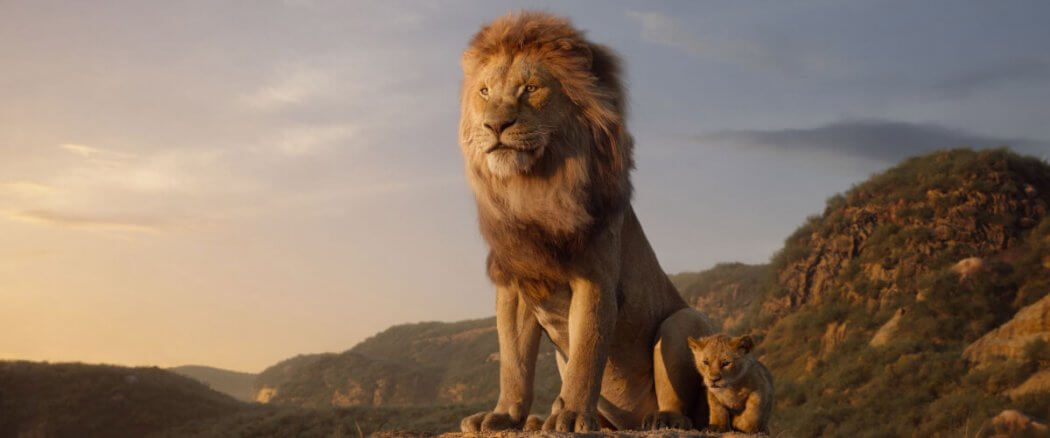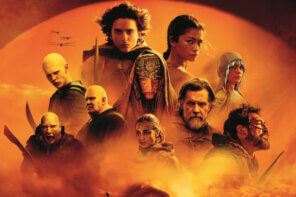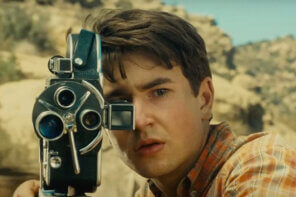In Disney’s continuing attempt to remake their animated classics, they have brought us The Lion King. The story has never looked so real, even though it treads familiar territory.
Similar Yet Different
While watching this version of The Lion King, I tried hard not to compare it to the original from 1994. However, it was difficult not to, as many scenes are nearly identical shot for shot to the original, and many of the story beats follow the exact same pattern. Yes, there are some minor changes to lyrics and a new song or two, and there’s a few new scenes with Nala (Beyoncé) and the lionesses. Unfortunately, the film does not take many other risks, which gives the whole movie a sense that it was not necessary. Why remake something if it is going to be so similar to the original?
That being said, The Lion King is a great story no matter its version. Fans of the original may or may not be impressed by this incarnation, but newcomers will get to experience some of the same storytelling, music, and visuals that has had an impact these last twenty plus years.
 Speaking of the music, Hans Zimmer and Elton John return to provide an updated version of the score and lyrics. This mostly works, as they enhance what they have done before. As for the performances of the music, they are good but occasionally difficult to listen to as memories of the original performances sometimes resurface. Seth Rogen and Billy Eichner’s “Hakuna Matata” is one that was good but a bit jarring to hear and see in a different light, and Scar’s (Chiwetel Ejiofor) performance of “Be Prepared” is one that was different yet great in its own right.
Speaking of the music, Hans Zimmer and Elton John return to provide an updated version of the score and lyrics. This mostly works, as they enhance what they have done before. As for the performances of the music, they are good but occasionally difficult to listen to as memories of the original performances sometimes resurface. Seth Rogen and Billy Eichner’s “Hakuna Matata” is one that was good but a bit jarring to hear and see in a different light, and Scar’s (Chiwetel Ejiofor) performance of “Be Prepared” is one that was different yet great in its own right.
In terms of performances themselves, Donald Glover does well as Simba. James Earl Jones strikes a nostalgic chord by returning as his father Mufasa. The rest of the cast does an ample job, but one standout performance is Chiwetel Ejiofor as Scar. He brings just the right amount of strength and menace to the character.
Photorealism
One area where the remake shines is in its visuals. The photorealism of the computer-generated animals and nature environments makes The Lion King feel like a nature documentary that has singing and talking animals in it. One sequence in particular feels like the audience is getting a glimpse into the daily life of some of the real animals in Africa rather than an animated movie. Because the filmmakers tried so hard to make the animals look lifelike, there are moments where an animal looks awkward when it speaks. These are only brief moments, however, and overall the visuals are stunning. According to director Jon Favreau, there is only one shot in the entire film that is not computer-generated. He did not divulge which shot it is, and the audience will be hard pressed to notice any difference. The Lion King certainly sets a new bar for photorealistic environments and creatures in films.
He Lives In You
The story of The Lion King is virtually the same, which means that its spiritual undertones are still prevalent. Simba self-exiles himself after (spoiler) his father’s death, feeling responsible after some choice words with Scar. He lives with the shame for a long time until he has an encouraging talk with Nala and the spirit of Mufasa. During the talk with his father, Mufasa reveals that he never left his son’s side and that Simba needs to remember that he is his child, the rightful heir to the pride. In this way, Mufasa is like our Heavenly Father: always there for us, even if we do not feel like He is; willing to forgive us for any wrong that we commit; and encouraging us to remember that we are His children. Furthermore, the song “He Lives in You” that plays during the credits drives home the fact that Mufasa will always be with Simba, but it also can serve as a reminder of our relationship with the Holy Spirit.
 Timon and Pumbaa represent a middle of the road type of approach to life. They bury the past and try to live in the moment worry free, not even believing in life after death. Though they certainly have times where they do things to help others, they are mostly concerned with looking out for themselves at the beginning of their story. In this way, they show how meaningless life can be without God.
Timon and Pumbaa represent a middle of the road type of approach to life. They bury the past and try to live in the moment worry free, not even believing in life after death. Though they certainly have times where they do things to help others, they are mostly concerned with looking out for themselves at the beginning of their story. In this way, they show how meaningless life can be without God.
Scar, on the other hand, represents the darkness of the spiritual realm. He feeds lies to Simba and tries to make him focus on his doubts and shame instead of on the truth. In the end, Simba has to overcome this voice to take back his home. Scar continues to try to claw doubt into him, but Simba stands firm in his belief and ultimately defeats his shame and uncle and is redeemed as (spoiler) the lion king, just as we can fight and be redeemed in Christ.
Final Thoughts
If you love the original, you will either love or hate this remake that plays it safe. This film is great for a new, younger generation of The Lion King watchers, but the only slight changes to the story make this remake feel unnecessary. Even so, the excellent visuals, performances, and music still provides moviegoers with a fun ride.





